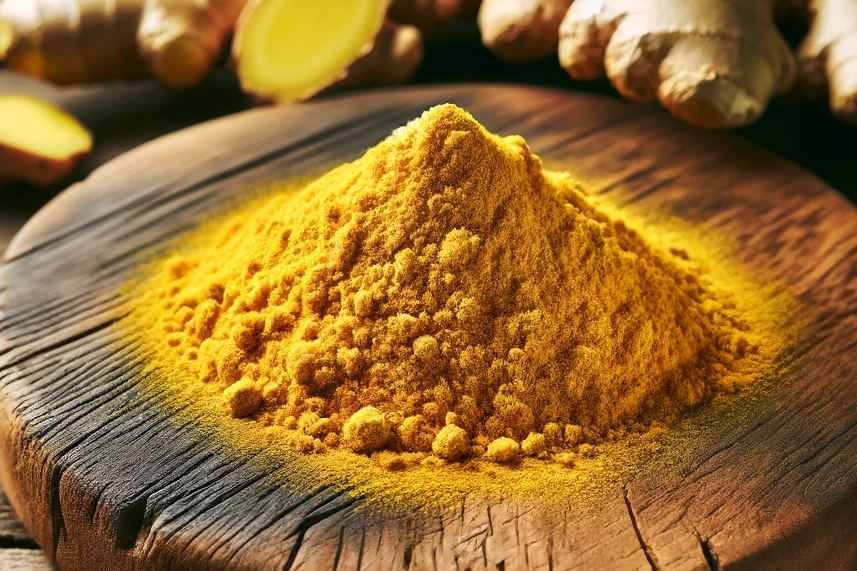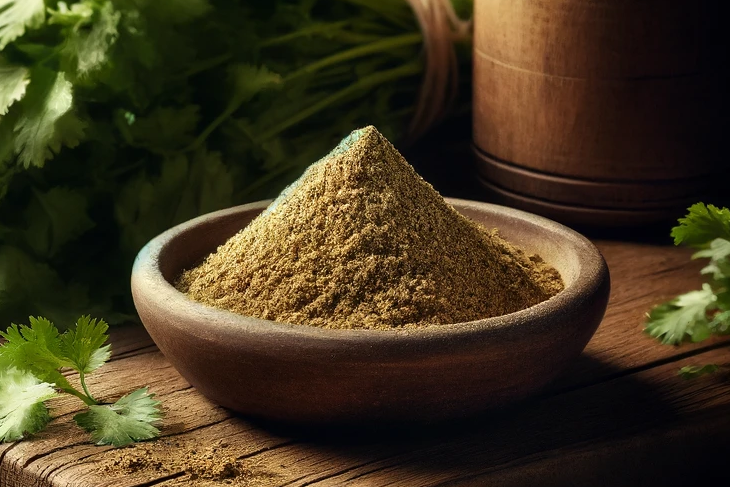Turmeric powder

Turmeric, a golden spice that has been prized in Asian cuisine and traditional medicine for centuries, has also gained popularity in pet care in recent years. For dogs in particular, turmeric powder is becoming increasingly popular due to its potential health benefits. However, while many praise the positive aspects of turmeric powder, it is important to be aware of the potential drawbacks as well. This article provides a comprehensive overview of turmeric powder as it relates to dogs, including its benefits, drawbacks and important considerations.
What is turmeric powder?
Turmeric powder is obtained from the ground root of the turmeric plant (Curcuma longa). It is known for its distinctive yellow color, which is caused by the active ingredient curcumin. Curcumin is responsible for most of the health benefits attributed to turmeric, including anti-inflammatory, antioxidant and antimicrobial properties.
Benefits of turmeric powder for dogs
Anti-inflammatory properties
One of the most commonly cited benefits of turmeric powder is its ability to reduce inflammation. This can be particularly beneficial for dogs with arthritis, skin conditions and other inflammatory conditions.
Antioxidant effect
Turmeric powder is rich in antioxidants, which can protect the body from free radical damage. This can contribute to overall health and reduce the risk of certain diseases.
Promoting digestive health
Turmeric powder can also aid digestion and help relieve digestive discomfort. It stimulates the production of digestive juices, which can facilitate the digestion of fats and help relieve bloating and gas.
Natural antimicrobial properties
The curcumin found in turmeric powder has natural antimicrobial properties that can make it a useful remedy against a range of infections.
Disadvantages and potential risks
Limited bioavailability
A major disadvantage of turmeric powder is its poor bioavailability. The body cannot easily absorb curcumin, which means it must be consumed in larger quantities to achieve potential health benefits.
Possible interactions with medications
Turmeric powder may interact with certain medications, including those used to thin the blood. This may increase the risk of side effects and requires careful monitoring and consultation with a veterinarian.
Risk of gastrointestinal discomfort
In some dogs, the introduction of turmeric powder into the diet may cause gastrointestinal upset, including nausea, vomiting and diarrhea, especially if consumed in excess.
Allergic reactions
Although rare, some dogs may have an allergic reaction to turmeric powder. Symptoms of an allergic reaction may include skin rashes, itching and breathing difficulties.
Use a spice wisely
Turmeric powder can be a valuable addition to your dog's diet, but it has both benefits and potential drawbacks. The keys to safe use of turmeric powder in dogs are moderation and careful monitoring. Responsible use can help maximize the health benefits while minimizing the risk of side effects. As with any supplement or change in your dog's diet, it's important to consider individual needs and health conditions to ensure the well-being of your four-legged friend.
If you notice any signs of hypersensitivity or poisoning in your dog, you should see your vet immediately. We are not a substitute for a vet, but we try to be as accurate as possible. Every dog reacts differently and we recommend you get a second opinion or consult your vet if in doubt.
Stay healthy and take good care of your four-legged friend!😊
Similar to Turmeric powder
Ginger powder is made from the root of the ginger plant (Zingiber officinale) by cleaning, drying and processing it into a fine powder. It contains a variety of bioactive compounds, including...
Saffron is obtained from the dried stigmas of the saffron crocus flower(Crocus sativus). Each flower has only three stigmas, which makes saffron one of the most expensive spices in the world. For...
Cumin powder is obtained from the seeds of the Cuminum cyminum plant, which is native to southwest Asia and is cultivated in many parts of the world. The seeds are dried and then ground into a fine...
Coriander powder is made by drying the seeds of the coriander plant and then grinding them into a fine powder. It is known for its slightly citrusy, nutty flavor and is often used in culinary...



